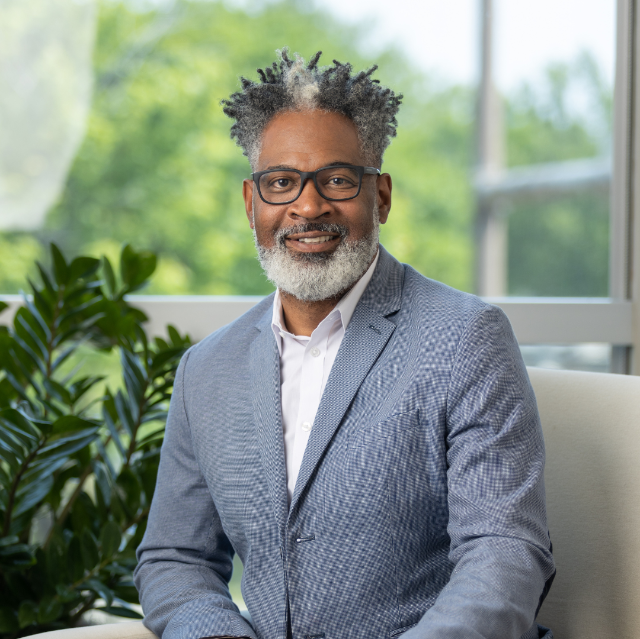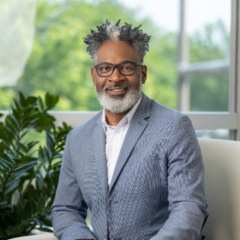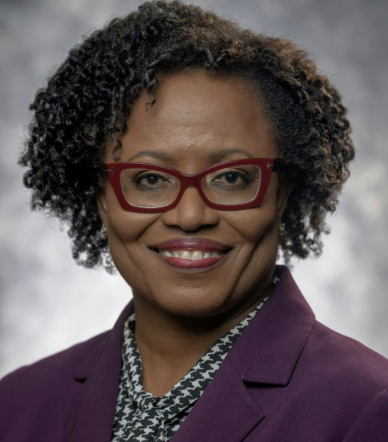This blog is a part of a year-long series called “Roots to Horizons” commemorating AFN’s 20 years in the nonprofit sector.
 Cory Anderson is Chief Innovation Officer at the Winthrop Rockefeller Foundation based in Little Rock, Arkansas. He also serves as an AFN Board Member and Co-Chair of the 2024 AFN Conference.
Cory Anderson is Chief Innovation Officer at the Winthrop Rockefeller Foundation based in Little Rock, Arkansas. He also serves as an AFN Board Member and Co-Chair of the 2024 AFN Conference.
In the tight-knit communities of Arkansas, connections run deep. It’s the kind of place where a conversation with a stranger can quickly reveal shared acquaintances and common experiences. Whether you’re in the heart of the Delta or nestled in the Ozarks, the closeness of our connections underscores a profound truth: our destinies are intricately tied together.
For the Winthrop Rockefeller Foundation, a small, state-based funder, harnessing this interconnectedness is paramount to advancing our mission of fostering equity across educational, economic, social, ethnic, and racial lines. Since its establishment in 2012, the Arkansas chapter of the Asset Funders Network has provided the infrastructure needed to rally diverse actors around common goals, empowering Arkansans to enhance their financial resources and assets.
As AFN commemorates its 20th anniversary, it’s fitting to reflect on the invaluable qualities that have proven particularly beneficial to small, state-based funders like us at the Winthrop Rockefeller Foundation.
Guided By Research
Arkansas AFN’s inclusive approach, driven by broad research inquiries rather than specific agendas, has led to a diverse chapter comprising private and community foundations, banks, credit unions, healthcare institutions, and utility companies.This approach has yielded successful initiatives like Bank On Arkansas+, a statewide effort addressing disparities in banking access and its impact on household financial stability.
Armed with data and a proven framework, Bank On Arkansas+ resonated with the goals and responsibilities of banking partners while providing a measurable solution to philanthropic goals of enhancing household wealth and security. Similarly, utility companies like Entergy Arkansas found clarity in their role through simple yet effective actions, such as distributing informational flyers in billing statements and extending valuable resources to low and moderate-income customers, contributing significantly to financial empowerment and community welfare.
Today, this research-driven approach extends to our chapter’s focus on ALICE (Asset-Limited, Income-Constrained, Employed), which offers quantitative insights into the challenges faced by hardworking individuals struggling to make ends meet. This research provides unique threads of engagement among our diverse membership and underscores how their expertise and resources can address critical barriers impeding economic mobility, such as medical debt, housing, childcare, and broadband access.
Focused On Measurable Action
In Arkansas, we’ve seen firsthand that tangible initiatives drive greater participation than mere discussion, with AFN serving as a crucial link between research and action. The success of the Bank On Arkansas+ initiative is a prime example, streamlining processes for banks and boosting support for low and moderate-income individuals. Notably, Forbes recently ranked Arkansas as the fourth-best state for banking access, citing the initiative’s significant impact.
Additionally, collaborative efforts in 2022 among a group of Arkansas AFN members helped sound the alarm on rising rates of medical debt and their impact on household assets and wealth building. Working with RIP Medical Debt, the group was able to erase $35 million in medical debt, bringing relief to nearly 24,000 Arkansans in all 75 counties.
Ongoing research with groups like the United States Consumer Financial Protection Bureau (CFPB) around the continued prevalence of medical debt provides the platform for further action, including legislation and policy reforms, hospital initiatives, consumer protections, and alternative payment solutions aimed at eliminating barriers to financial security and wealth building.
Sustained Through Practice
The success of AFN and the regional chapter model, in my experience, is rooted in the practice of ongoing collaboration. This practice strengthens the network’s cohesion and ensures the transfer of knowledge, creating a consistent rhythm of learning and action that drives our impact and effectiveness.
At Arkansas AFN, the consistent practice of collaboration, even in the face of occasional setbacks, has proven indispensable. Simply engaging in collective efforts fosters a sense of purpose and cohesion, ensuring organizational continuity and alignment with our mission. Whether bringing along apprentices, successors, or colleagues from other departments, this passing of the torch ensures that our shared knowledge endures. Each passing year brings new insights and initiatives, building upon successful strategies while venturing into new territories. This continuous cycle of exploration and implementation serves as our “secret sauce,” keeping us united and effective in our mission.
The Chance To Experience It All In NOLA
Every two years, AFN members have the opportunity to fully immerse themselves in the network’s unrivaled programming that brings to life the qualities described above. This year’s biennial conference will take place in New Orleans from April 16-18, 2024. As a conference co-chair, I have witnessed firsthand the intentionality, expertise and commitment among staff, board and conference committee members to harness the collective wisdom gained from two decades of our shared asset-building journey. Together, we are poised to reflect on our achievements and to chart a bold course for the future.
We’ll address pressing topics—from housing and caregiving crises to broadband technology, court fines and more—mapping out pathways to economic security and justice. More than a forum for dialogue, it’s a call to action where we roll up our sleeves and implement concrete, mission-aligned, measurable, and sustainable strategies that will center economic equity and leave a lasting imprint on the communities we serve.
We eagerly anticipate welcoming all of you to join us this April, acknowledging our collective achievements and, more importantly, charting the actions that will advance equitable wealth-building and economic mobility for all.


